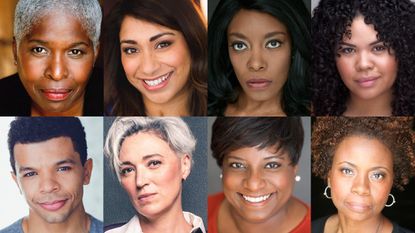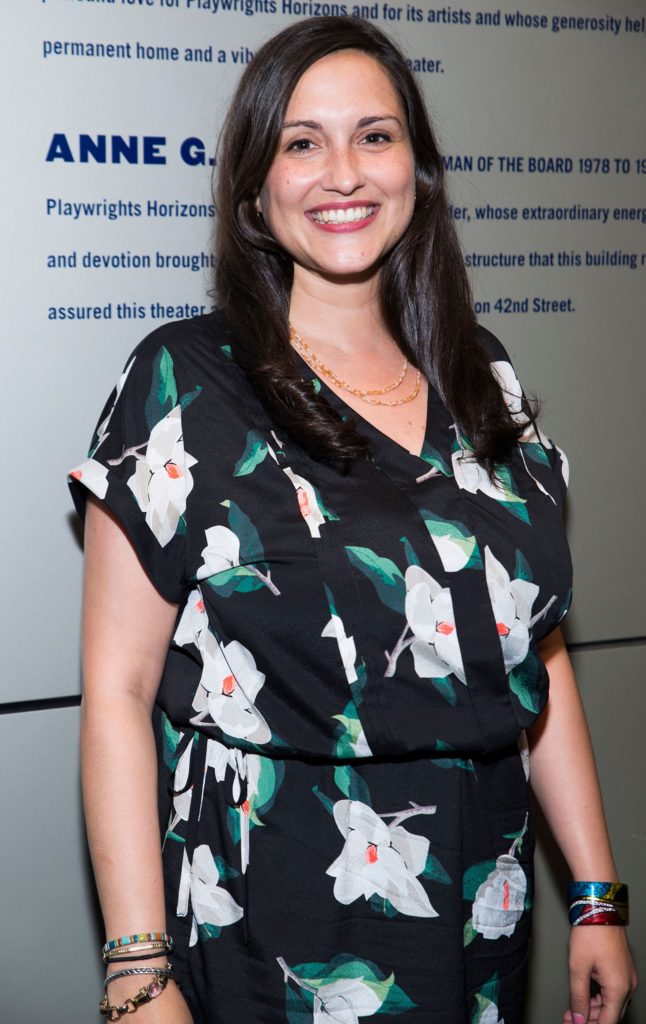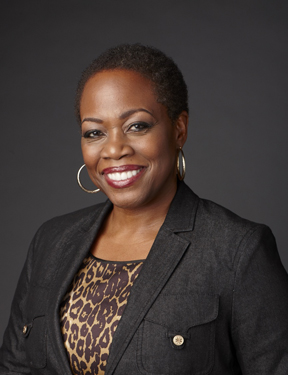
Theater for One: Here We Are is a lot more than you think. A concept that flew into New Yorker Christine Jones’ mind after attending a wedding reception in 2002, it all began with an illusion. Roaming through the gathering while entertaining guests, a magician beguiled Jones with a magic trick performed just for her. Completely charmed by the concentrated intimacy of the experience, a “what if” moment was born. Could that same level of intense connection be translated to fit a theater setting? Let’s say one that entails the use of a big black box just large enough for two people sitting facing one another? Actor on one side, single person audience on the other. Fueled by a variety of microplays reflecting narratives that define the texture of contemporary life, the format worked and received gleaming reviews.
With Covid still flourishing, Theater for One’s original set-up is, of course, out. Still, intrigued by its potential, Hyde Park’s Court Theater has done what resourceful minds have been doing since last March and adapted. Its Theater for One: Here We Are may not let you go eyeball-to-eyeball in person as originally conceived, but the intimacy of its virtual, but live, digital experience remains strikingly intense. Even when you have some knowledge of the plays’ topics, the way in which each one is introduced, developed and performed is always a surprise of the most satisfying kind. Ms. Jones is Artistic Director for this project; as well.

As the first in a series of four plays Saturday afternoon, Carmelita Tropicana’s Pandemic Fight was perhaps the most awkward. An awkwardness generated entirely by the newness of the experience to the audience. Performed with disarming casualness by Melissa DuPrey, innocent small talk soon bloomed into a story. It might be compared to striking up a conversation with a total stranger on the bus and having it evolve into a telling commentary about racism on the down low.
As each performance opens, it takes a minute to realize you’re not really supposed to say much, or anything beyond what will move the needle forward. In that regard, Pandemic Fight’s such a sly little tale. And you can’t help but be infatuated by way it grows and takes on brawn. All the while there’s this conversation flowing beneath the “play” between your eyes and those of the actor. One that begins and ends in a question mark.

Besides a pervading and persistent air of mystery that surrounded each one of these mini theatrical encounters, splendid writing permeated all of them. Each of the eight playwrights are highly recognized and highly-regarded. Each is a woman of color who knows how to either tell the known with fresh insight or the unexpected with clarity and lasting resonance. Ms. Tropicana is Cuban American and excels as a multi-talented performer as well.

Jaclyn Backhaus, who penned the exquisite Thank You Letter, has roots that reach to southeast Asia. In her play, Adithi Chandrashekar can’t figure out why her family is so silent and won’t, or can’t, talk about anything meaningful. When she shifts, and talks about the thank you letter she’s written to Congressman John Robert Lewis, you’re treated to one of the most beautiful narratives about the immigrant experience you’ll ever be privileged to witness. The contents of the letter ended up telling a lot about her family, too. Genuine and open, Chandrashekar’s character and performance exuded so much credibility and sincerity you couldn’t imagine you were sitting in a contrived storytelling environment. Thank You Letter also highlighted the virtuosity of the directing evident throughout the four plays that afternoon.

The two other performances on Saturday’s program were both written by Black women who came at their stories from two very different places. Vote (The Black Album), written by Regina Taylor and brought to life by Cheryl Lynn Bruce, was a one woman show taking a fresh look at the history, legacy, power and psychic costs of the right to vote. Stacey Rose’s Thank You for Coming, Take Care, was a stealthy throat grabber that flipped from an expression of gratitude to a nettled warning in a flash as an incarcerated mother talked to me, the audience; proxy for the guardians of her daughter. Sydney Charles was a bushel full of special in the role and was perfectly matched to Rose’s stark and ravishing language celebrating a woman’s pride and will.
Fifteen to thirty minutes in length, each play was preceded by a chat waiting area that engaged you with questions about just about anything. The weather, questions about what you’ll do once the quarantine is lifted, snowflakes, queries about what you do to relax. When the play begins and one of the actors says you’re not what she expected, you wonder, is that part of the script or real? Did all those questions in the chat really mean something? You never know, which is just one more thing that adds to the vitalizing appeal and mystery of the Theater for One concept. It gives you an appreciation of what theater can feel like when barriers fall away and storytelling gets hyper-personalized. Fascinating then takes on an entirely new dimension.
Theatre for One: Here We Are
Runs through March 14, 2021
Free
Info/Reservations https://www.courttheatre.org/